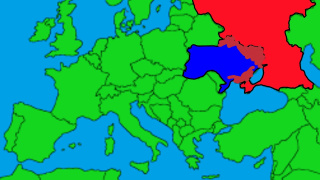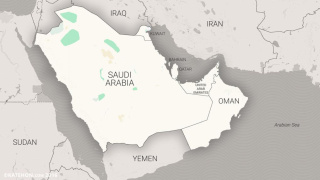New involutionary wave?
As the writer Samuel Huntington explains in his book "The Third Wave," (Third Wave, 1991), the world has gone through three waves of destabilization and democratization. According to Huntington, a wave of democratization would be “a set of transitions from a non-democratic regime to another democratic one that occur in a certain period of time and exceed transitions in the opposite direction during that period and that also implies the liberalization or partial democratization of political systems ”. Thus, in the modern world there would have been three waves of democratization and each of them would have affected a small number of countries and during their course some transitional regimes went in an undemocratic direction; But not all transitions to democracy occur during waves of democracy.
First and Second Wave
The first wave began in the 19th century and lasted until the Great War and the second occurred in the years after World War II and both were followed by a reverse wave, with countries such as Brazil, Spain, Portugal, Greece, Granada, Brazil and Panama, which had to make a subsequent transition to democracy, completed in the 1990s with the democratization of the countries of the former USSR and South Africa.
Third wave of democratization (1974-1990)
In his analysis of the third world wave of transitions to democracy (which began in 1974 with the Carnation Revolution in Portugal), Samuel Huntington observed that the possibilities of democratization increased when these countries emerged from poverty and reached an intermediate level of socio-economic development, at which point they entered a zone of political transition. Remember that between 1974 and 1990, more than thirty countries in Southern Europe, Latin America, East Asia and Eastern Europe went from an authoritarian regime to enjoying a democratic system of government, all within the framework of a global tsunami that is perhaps the most important political event of the late twentieth century.
According to Huntington's thesis, this democratic sprint would be explained because after the virtual dystopia of the Cold War was ended, military dictatorships would no longer be a useful instrument for the United States in the fight against communism and would no longer be the solution but the problem. Furthermore, despite the fact that in the aforementioned countries there was no tradition of democratic culture, they quickly understood that if power continued to reside in an elite that distrusted the egalitarian system exported by the United States, they would always gravitate around the aegis of the interests of said elite. , which would make it impossible sine die the assumption of power by civil society. Thus, in 15 years the democratizing wave moved through Southern Europe, jumped to Latin America, moved to Asia and ended the authoritarian systems of the post-Soviet countries, (of which the fact that in 1974, eight of the 10 South American countries had undemocratic governments and in 1990, 9 already had democratically elected governments), and according to Freedom House, 39% of the world's population lived in free countries in 1990, decreasing for the first time the absolute number of authoritarian states.
Fourth wave of democratization (2003-2013)
The so-called “Arab Spring” (which had its trigger in Tunisia and spread by mimicry to the rest of the Arab countries of the Mediterranean arc, Yemen and Iraq during the decade 2003-2013), would be the first wave of secular and democratic protests in the Arab world in the 21st century, an unprecedented popular movement characterized by the demand for democratic freedoms in the face of corrupt and dictatorial regimes and the improvement of the living conditions of a population mired in severe poverty and stratospheric unemployment, also counting in the case of Tunisia and Egypt with the support of the Army. With this revolution we are witnessing the arrival in the Arab countries of the Mediterranean arc of the Fourth World Wave of transitions to democracy, although Huntington did not grant any revolutionary potential to the Islamic countries in the 1990s, despite recognizing “the strength of the Islamic revolt and the very weak roots of their respective democracies ”. However, the coup carried out by the Egyptian Army against Morsi could have as a mimetic effect the transfer to the Turkish and Tunisian streets of a pressure campaign against the last Islamist governments of the Mediterranean arch to achieve the intervention of the Army with which we would assist at the end of the Arab Spring and its subsequent immersion in the new US strategy for the area after the failure for the US of the export experiment of the moderate and pro-Western Islamist regime of Erdogan to all the countries that make up the giant board of the Arab arch -Mediterranean.
New involutionary wave? (2013-2033)
Many of the democratic elections of the last decade have been marked by accusations of electoral fraud (Nigeria, Ukraine, Mexico, Belarus, Honduras, Ivory Coast, Thailand, Pakistan and Afghanistan), international isolation of democratically elected governments (Bolivia, Ecuador , Venezuela, Nicaragua and Gaza Strip); pseudo-elections to try to sweeten soft coups (Honduras, Ukraine, Egypt, Paraguay and Vietnam) and acceptance by the international community of political systems turned into mere autocratic governments (Georgia and Belarus). Autocracy would be a form of government exercised by a single person with absolute and unlimited power. which confirms Lord Acton's aphorism "Power tends to corrupt and absolute Power corrupts absolutely." The autocracy would therefore be a kind of invisible dictatorship supported by solid cohesion strategies (mass manipulation and cult of the leader) based on absolute control of the media and the censorship and social discredit of individuals refractory to the leader's message.
Paradigms of this would be the Polish Prime Minister Mateusz Morawiecki and the Hungarian Prime Minister, Viktor Orbán, who would have made Hungary the first European autocracy or “non-liberal democracy”, a doctrine that the rest of the Visegrad Group countries will adopt (Slovakia and Czechia). From all this it follows that we would be on the eve of the irruption on the geopolitical scene of the new world destabilizing wave caused by economic causes (the decline of the global economy); cultural (the decline of Western formal democracies due to a culture of corruption; the democratic deficit of the US and the loss of democratic credibility of countless governments of Western and Third World countries) and geopolitical (the irruption of a new world geopolitical scenario after the return to the recurrent endemism of the Cold War between the US and Russia).












